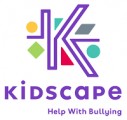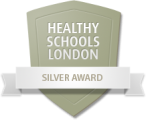
Claire Deegan
Claire Deegan is the school SENCo and designated Mental Health Lead. Claire works closely with the school counsellor and WAMHS link professional to ensure that mental health provision continues to be strong across the school.

Natasha Mattos
Natasha is our school counsellor. Natasha offers a confidential space for children to come and explore their thoughts and feelings about worries they might have. Pupils who need support are identified during pupil welfare meetings.

Dr. Zoe Tweedale

Laura Serrani
Laura Serrani joined Shoreditch Park in February 2022. She will offer 1:1 counselling and some group work. She will also facilitate Place2Talk where children can self-refer to discuss any concerns or worries that they might have.

Naddy Chavdarova

Danila De Morais
Danila is our Educational Mental Health Practitioner who works in school on Monday afternoons. She is part of Hackney's Mental Health Support Team. Danila works with parents who have concerns around their child's mental health. She also carries out direct work with groups of pupils.
Mental Health Support
At Shoreditch Park we are committed to the early identification of any mental health issues that a young person may be dealing with. This can include low self-esteem, attachment disorders and difficulties regulating emotions.
We offer a range of interventions in school that promote positive mental health including art and gardening nurture groups, social skills groups and groups that are focused on supporting children to create their own toolkit of self-regulation strategies, using the Zones of Regulation approach. Natasha Mattos, our School Counsellor, works with a small number of children that we have identified as needing additional support with their mental health.
As well as in-school interventions we refer young people to a number of services including:
- Kooth - this service is an online platform which provides free, safe and anonymous online counselling and support to children and young people age 11-18.
- Young Hackney - this service offers early help and prevention services for children and young people. Young Hackney positively and pro-actively engage young people, and establish helpful relationships with trusted adults to support the achievement of positive outcomes.
- Specialist CAMHS - this service offers assessment and treatment for children, young people (0-18 years) and their families who have moderate to severe emotional, behavioural and/or mental health difficulties.
- First Steps - this is a service for children, young people and their families who have mild to moderate mental health problems.
- CAMHS disability - this service works with children and young people with significant learning disabilities / Intellectual disabilities and/or ASC.
- Place 2Be - We have been lucky enough to receive funding from UBS to allow us to offer additional therapeutic support in school from Place2Be. We will update the website when this provision begins in Autumn 2.
WAMHS
As of September 2020 Shoreditch Park is part of the Wellbeing and Mental Health in Schools (WAMHS) service, which aims to improve mental health and wellbeing support for children.
WAMHS focuses on building academic, social and emotional resilience and coping skills in students and helping them to identify and access additional support if needed. The service is also based on further developing knowledge and skills in education staff so that they are more confident and feel more able to support students, and their families, who may be experiencing mental health difficulties.
Shoreditch Park has a designated CAMHS clinician Dr. Zoe Tweedale, who comes into school for one full day each fortnight. Zoe will be supporting staff to think about ways that they can support the children in their classes and will be offering some parent workshops and training sessions.
If you would like to find out more about WAMHS please contact a member of the Inclusion Team.
Please see the CAMHS Alliance Handbook for more detailed information on the mental health offer in City and Hackney.
Mental Health Support Team (MHST)
Danila De Morais is our Educational Mental Health Practitioner working as part of the MHST. Danila works with parents and groups of pupils to support pupil mental health. Please see the video below and attached leaflet for more information.
Mental Health and WAMHS Highlights
WAMHS Parent Workshop
On 2nd December our WAMHS link worker, Dr. Zoe Tweedale, led an online parent workshop focused on supporting children's wellbeing. The workshop explored what anxiety is and tips to support parents to talk to their children about their worries. Zoe also demonstrated a range of breathing and relaxation techniques. It was great to see parents sharing their experiences and strategies that have worked well for them. If you attended the training session please complete this feedback form.
If you would like to arrange a consultation with Zoe to think about your child's mental health and wellbeing please get in touch with Miss Deegan (SENCo) via the school office.
Place2Be

Parenting Smart
Our Mental Health Practitioner, Laura Serrani, works with individual children and delivers small group interventions. Place2Be also offers a Family Practitioner who delivers training and workshops to the wider school community and deliver Personalised Individual Parent Training (PIPT) to some families.
As we are a Place2Be school our parents can sign up to a free Parenting Smart course which is facilitated by our Naddy, our link Family Practitioner. The course is split into four modules each focusing on parenting skills that will help improve the parent – child relationship and identify new ways to respond to challenging behaviour. Areas covered include:
- Connecting: How to build a strong bond with your child
- Praise & Reward: How to encourage desired behaviours
- Selective Ignoring: How to discourage unwanted behaviours
- Clear Instructions: How to ensure your child understands what is expected of them
- Boundaries and Consequences: How to set limits in advance in an effective way
- Time Out: How to manage extreme behaviour
The dates for this year's courses are:
- Autumn term:
- Tuesday 26th September 2023 – Friday 20th October 2023
- Tuesday 14th November 2023 – Friday 8th December 2023
- Spring term:
- Tuesday 16th January 2024 – Friday 9th February 2024
- Tuesday 27th February 2024 – Friday 22nd March 2024
- Summer term:
- Tuesday 23rd April 2024– Friday 17th May 2024
- Tuesday 10th June 2024 – Friday 5th July 2024
We are delighted to let you know that Parenting Smart can now easily be translated and read aloud in many languages.You will see an orange accessibility icon at the bottom right of the website, clicking on it will open the ReciteMe toolbar (pending you gave consent to cookies). The Recite Me toolbar allows visitors to customise our content in ways that work best for them, this includes instant translation as well as the ability to modify the font and background.
- We hope this will help many more families accessing our parenting tips!
The Place2Be website is an excellent resource with guides written by experts on a range of topics including behaviour, anxiety and identity.
Mental Health Support for Parents
If parents are concerned about their own mental health they can make a referral to Talk Changes. Talk Changes are a confidential NHS service for adults registered with a GP in City and Hackney. They offer a wide range of tried and tested NHS talking therapies.
If you would like to improve your understanding of mental health, particularly in light of the Covid-19 pandemic, MindEd offer free support and training.
Urgent Support
If you need urgent help because you are worried that you might harm yourself or someone else you can:
- call the 24-hour City & Hackney crisis helpline on 020 8432 8020
- text Shout, a 24/7 UK crisis text service available for times when people feel they need immediate support. Text the word ‘SHOUT’ to ‘85258’ and you will be put in touch with a trained Crisis Volunteer.
- contact the Samaritans by phone or email. They are available 24 hours a day, 365 days a year. Call 116 123, or email jo@samaritans.org
Top tips for how you can support your child's mental health
Day to day
Our everyday habits are important to our mental health, just as they are to our physical health. Here are a few suggestions to help your child develop good habits.
Think about the five ways to wellbeing
Are there things you can encourage them to do, or do together, each day? Please see here for more information about the five ways to wellbeing.
Talk openly about mental health
Just as you might encourage them to eat fruit and veg to keep their bodies healthy (and model this behaviour yourself), talk openly about, for example, staying connected with others or being physically active in order to take care of our minds.
Model good habits
Children often learn from copying what they see around them. If you are taking care of your own mental health, it's easier for them to see what good habits look like.
Think about phone usage – both theirs and yours
We don't fully understand the impact of social media on our mental health but using phones and laptops can impact on our sleep, which is important to our mental health.
We're also more likely to listen to one another if we're not distracted by technology.
Notice any changes in your child's behaviour
Young people tell us how they're feeling in many ways, not always verbally.
Learning what is normal for your child makes it easier to notice when things change, and if this might be a sign that they're struggling.
When times get tough
Sometimes you might worry about your child's mental health. While you might need to speak to a member of the Inclusion Team or your GP for advice, here are a few things you can do if you're worried.
Let your child know that you're concerned
Explain why you feel that way, for example if you've noticed they haven't been interested in activities they usually enjoy.
Use activities that you do together to have conversations about how they are doing
Talking whilst doing something together, side-by-side, such as cooking, can help them share their feelings more easily than a face-to-face conversation.
Let them know that struggling sometimes is normal and nothing to be ashamed of
Tell them about the mental health spectrum and that we all, including you, go up and down the scale throughout our lives. Reassure them that talking about difficult feelings with the people we trust is a brave thing to do.

Listen and empathise
Often the first step to feeling better is feeling connected and knowing that someone is alongside you.
Empathy helps young people (and adults) connect. Empathy involves acknowledging what your child is feeling, trying to understand things from their point of view and avoiding judgement. Empathy is usually more helpful than giving advice or trying to 'fix' their problem.
If you're still worried...
Talk to a trusted member of the inclusion team or your GP who can point you towards sources of help.
Children's Mental Health Week 2021 - Express Yourself
 At Shoreditch Park we are celebrating Children's Mental Health Week with some collaborative activities. The theme is Express Yourself and every child in the school has been working hard to create an artwork that expresses who they are and how they are feeling. In assembly we will be dressing to express, with the children wearing their most vibrant and eye-catching clothing.
At Shoreditch Park we are celebrating Children's Mental Health Week with some collaborative activities. The theme is Express Yourself and every child in the school has been working hard to create an artwork that expresses who they are and how they are feeling. In assembly we will be dressing to express, with the children wearing their most vibrant and eye-catching clothing.
Please see below for some resources that you can use with your children during Children's Mental Health Week and beyond.
The Children's Mental Health Week website has some resources that you can use at home.
Feeling better - clips to share with EYFS/ KS1 children that explore a whole range of feelings and emotions, as well as providing talking points and tools to feel better.
Super movers - get active with catchy songs and dance routines.
Stormbreak - a selection of videos with activities that children can follow, focusing on wellbeing, positive relationships and resilience.
Cosmic Kids yoga - Lots of fun yoga routines that are accessible and easy to follow.

































